Java queens: Writing the coffee story, from farm to brew
India is the sixth largest coffee producer globally, contributing 3.2 percent of the world's coffee production—and many women in the industry are leading the way


The coffee market in India is projected to grow by 1.12 percent (2024-2029) resulting in a market volume of US$592.70m (Rs 5030 crore) in 2029. And Baba’s Beans, a brand named after the saint who introduced coffee to India, is moving this along, one small farm at a time.
Co-founded by college friends Sadhavi Ashwani and Mrinal Sharma in 2014 in New Delhi, the brand is focussed on bringing the small Indian coffee farmer closer to the domestic consumer. “While the world runs toward mass production, we slow down to honour the beauty of the nano-lot," says Ashwani.
India has about 250,000 coffee growers, with 98 percent of them being small growers. And the Baba’s Beans duo are just a small part of the coffee story being written in India by women. From specialty roasters to tasters to blenders, women are part of the entire gamut of coffee production from growing to processing, fermentation and brewing. We spoke to some women leaders who are shaking and stirring things up in the Indian coffee industry.
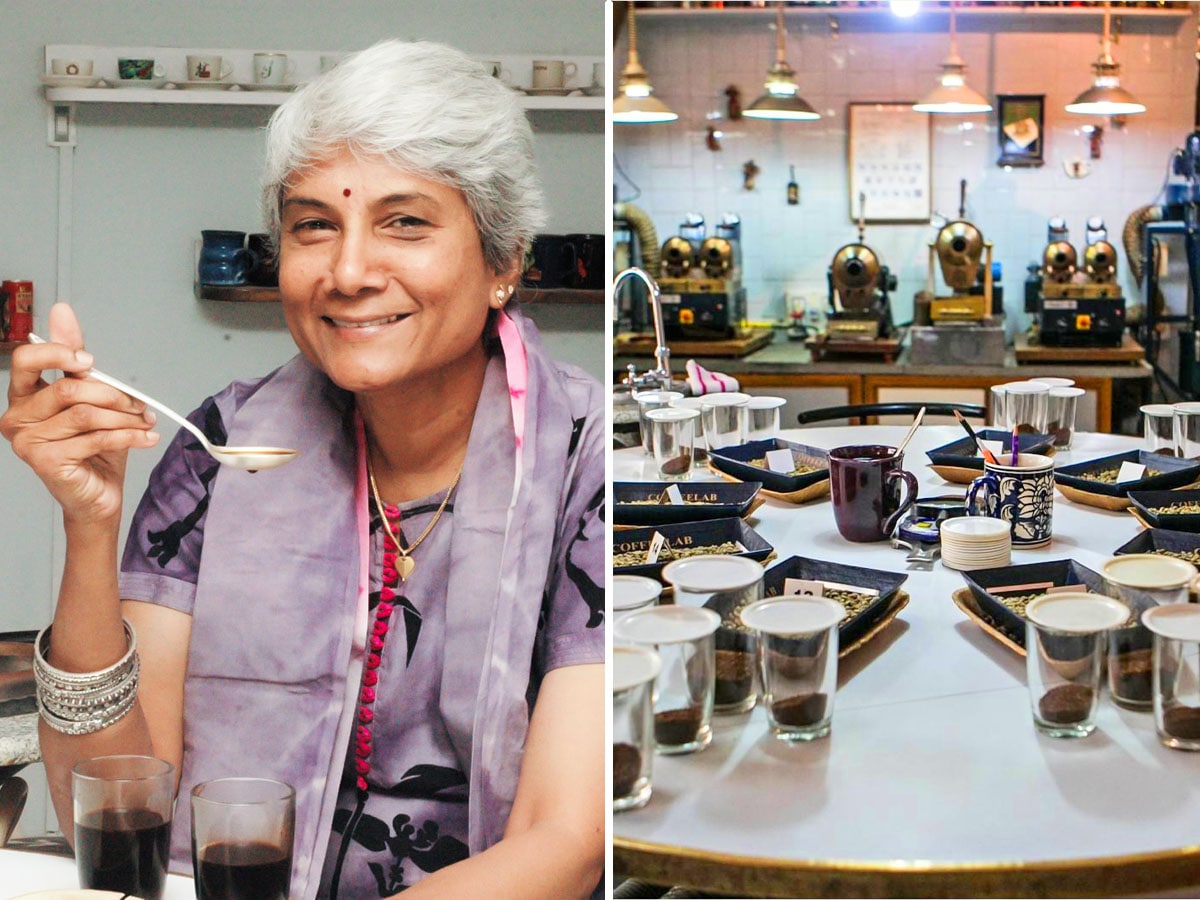 Sunalini Menon at her tasting table in her CoffeeLab
Sunalini Menon at her tasting table in her CoffeeLab
Menon’s coffee journey began in 1971 when she was recruited by the Coffee Board of India, a statutory body under the Government of India, to help in the setting up of the Tasting department at the Board. After having worked extensively in the industry, she started CoffeeLab in 1996, handling quality aspects of Indian coffee. “My journey commenced with a focus on the coffee farmer and the various steps that he needs to follow during post-harvest to ensure the quality of his end product," says Menon.
Apart from carrying out the visual and cup quality evaluation of Indian coffee samples, coffee samples from various producing origins are also evaluated to help the small and tiny coffee farmers from various global producing origins. “Today, the coffee culture is booming in India thanks to the millennials and Gen Zs, with the lab also conducting training on coffee brewing methodology, besides helping the attendees to understand the technical nuances of brewing. This training is extended not only to those in the coffee value chain, but also to interested coffee connoisseurs," says Menon, whose work ensured that a Limited Reserve of Tata Nullore Estate coffee made it to Starbucks Reserve in Seattle in 2013.
“At the lab, we now work with farmers from different regions, understanding the taste profile of their coffees and thereafter examining as to how the intrinsic quality of the beans could be highlighted, besides bringing in additional flavours through different processes such as double fermentation, bio fermentation, thermal shock, yeast fermentation, carbonic maceration and the like," says Menon.
With decades of work in the coffee sector she has also added another feather to her cap as she is now the first Indian to be appointed as a director on the Board of Directors of the Speciality Coffee Association of America and Europe (SCA), the largest speciality coffee association in the world.
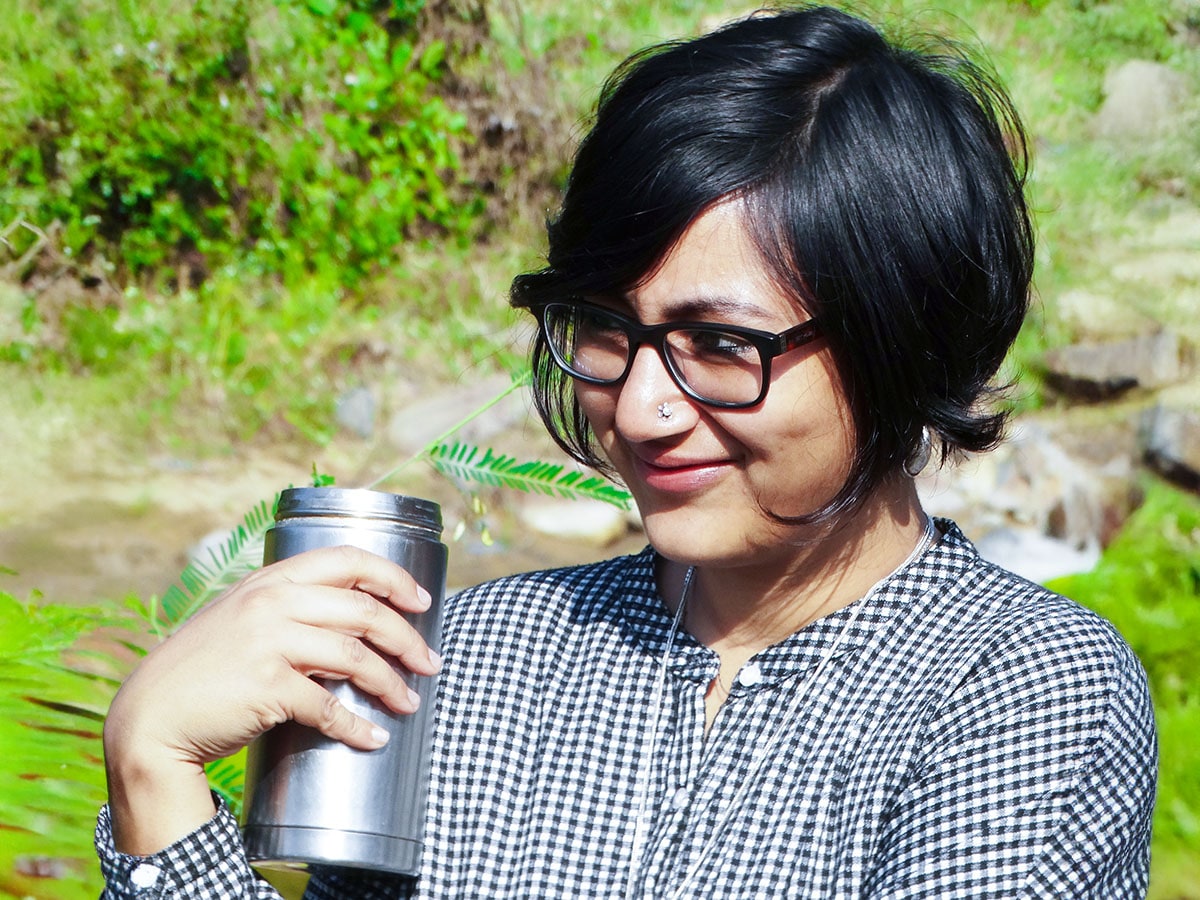 Arshiya Bose, Founder of Black Baza Coffee
Arshiya Bose, Founder of Black Baza Coffee
Coffee roasting company Black Baza Coffee, started in 2016 in Bangalore, aims to empower small coffee producers to grow coffee that is biodiversity friendly. It works with small-scale coffee growers in India to create a fair, sustainable, and inclusive coffee ecosystem. Over 650 smallholder farmers, many from indigenous communities, partner with them to grow coffee using biodiversity-friendly, climate-resilient methods. These growers often cultivate on less than 10 hectares, facing significant challenges like low prices, high debt, and market inequities. “Through our Farmer Climate Schools, we equip farmers with tools to adapt to climate change, improve productivity, and build healthier, more diverse ecosystems. Women farmers are at the core of this effort we focus on building their capacities to reduce debt, enhance yields, and safeguard their land against climate risks. This isn’t just about farming techniques it’s about agency, equity, and ensuring that their voices shape the way we grow and trade coffee," says Bose.
Interestingly, the name Black Baza comes from a small, striking bird of prey found in the coffee forests of South and Southeast Asia. The bird symbolises the delicate balance between biodiversity and coffee cultivation and represents their commitment to building coffee farming systems that support wildlife, conserve forests, and sustain farmer livelihoods. Just like the Black Baza thrives in diverse habitats, they believe coffee can thrive alongside biodiversity, creating harmony between people and nature. “By linking ethical consumers directly to producers, the company supports fair pricing, reduces debt, and promotes long-term income security, all while keeping forests standing," says Bose.
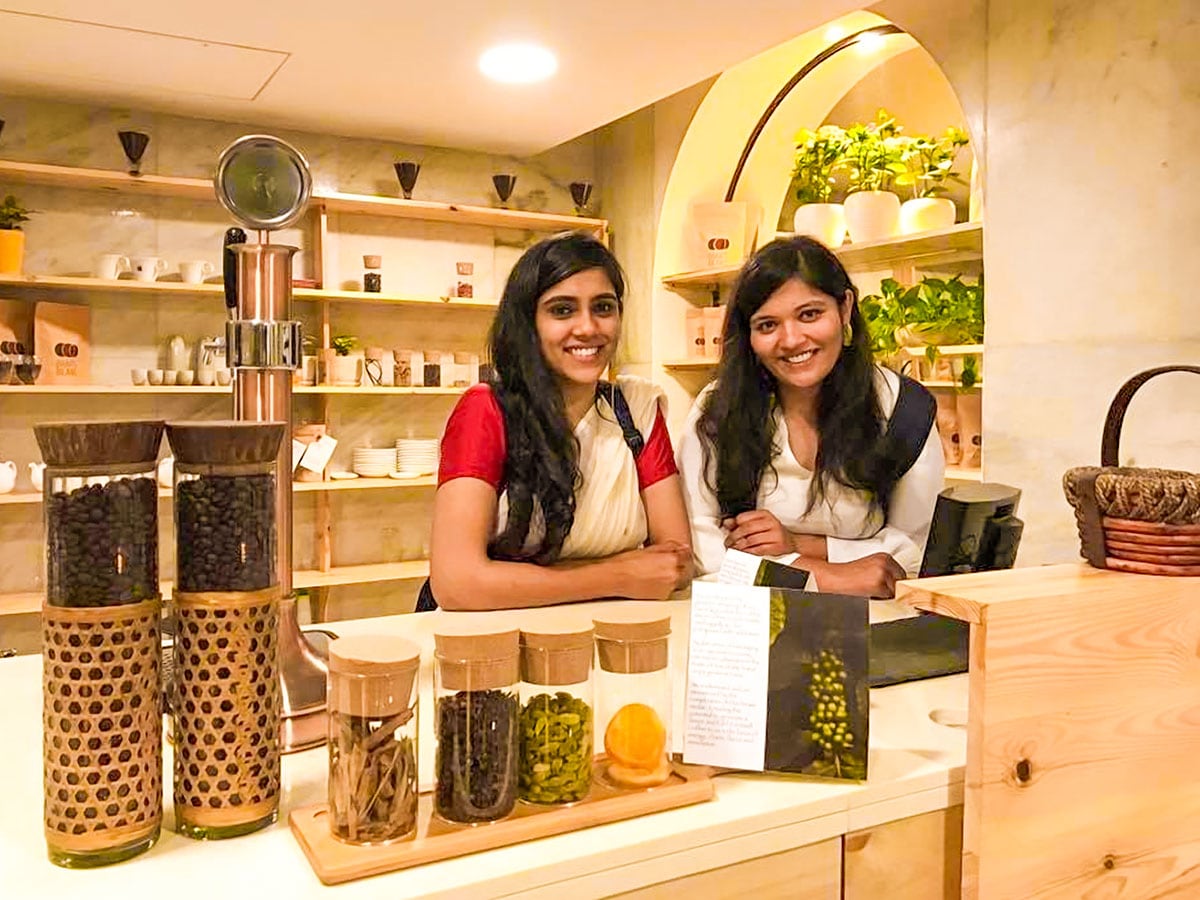 Mrinal Sharma (left) and Sadhavi Ashwani from Baba Beans
Mrinal Sharma (left) and Sadhavi Ashwani from Baba Beans
Baba’s Beans, a brand named after the saint who introduced coffee to India, is all about crafting stories, one small farm at a time. “My co-founder and I have always been fascinated by the role agriculture plays in shaping economies and communities. Coffee, as a product, epitomises this intersection. It’s not just a commodity it’s a cultural touchstone, an economic driver, and a daily ritual for millions. We saw an opportunity to create something that celebrated this rich tapestry," says Ashwani, who along with Sharma started the company in 2014 in New Delhi.
Their value chain is designed on the imperative of delivering a quality lifestyle product, bringing the small Indian coffee farmer closer to the domestic consumer. “While the world runs toward mass production, we slow down to honour the beauty of the nano-lot, the artistry of the farmer, and the intricate journey of coffee from soil to soul," says Ashwani.
A home-grown coffee label that aims at cultivating a deeper connection to India’s biodiversity, the team sources spices, herbs, and botanicals from different regions of the country. “We are building what we call our ‘crop universe.’ This vision is rooted in using India’s agricultural brilliance to redefine how people experience coffee and its accompaniments. We work with small farmers growing 200-300 kg of coffee on their small land holdings. These small farms allow us to source beans with rare, distinct flavour profiles that reflect their terroir. Every bag of coffee we source carries the essence of the land it comes from, offering a unique experience that can’t be replicated," says Sharma.
The challenges they have faced have been numerous, but interestingly, have not been around gender. “Instead, they stem from breaking away from traditional norms and established ways of doing things in the industry. Operating outside of the norm has become our strength, allowing us to delve into the vast crop universe that India offers. We see coffee as a lifestyle choice, one that should be enjoyed subjectively, based on individual palates and preferences," say the duo.
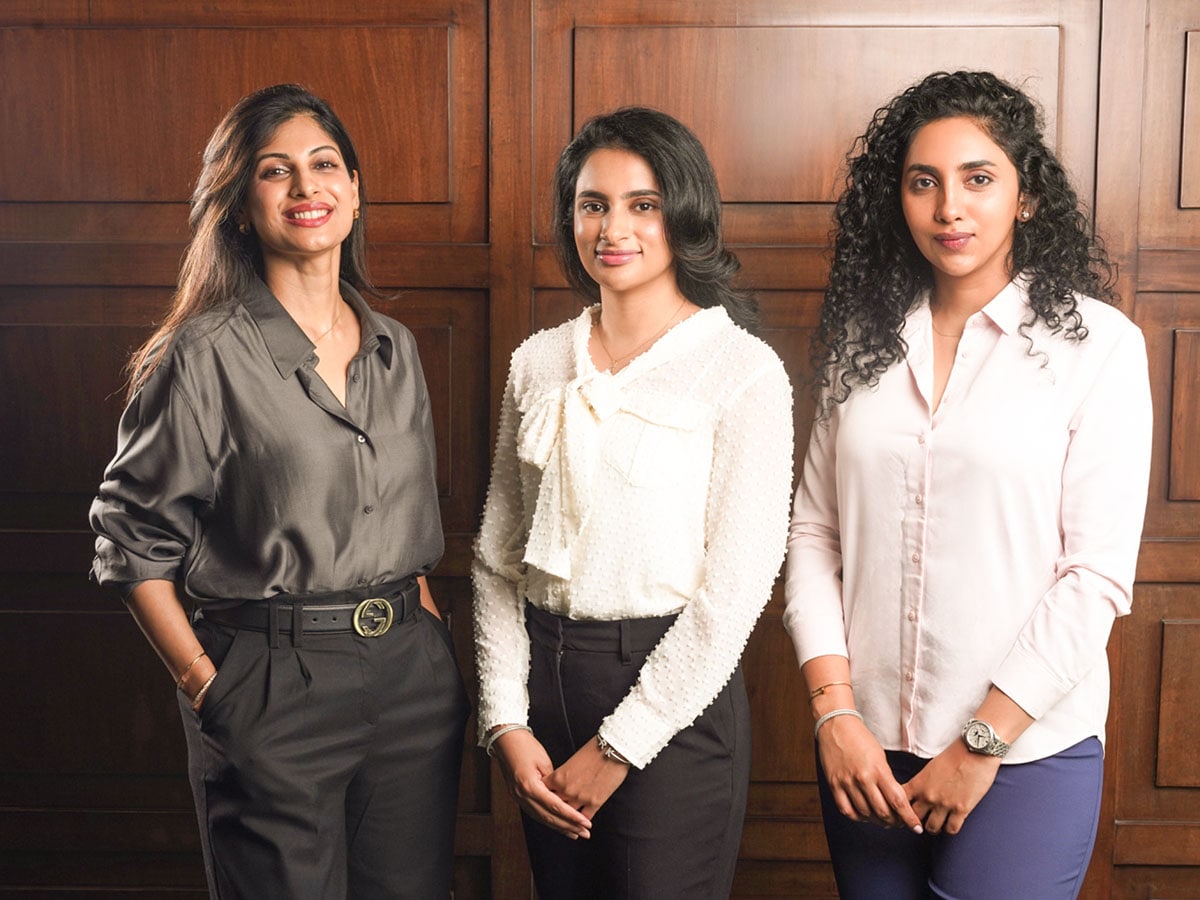 (from left) Neleema Rana George, Ryana Kuruvilla and Rishina Kuruvilla, Kelachandra Coffee
(from left) Neleema Rana George, Ryana Kuruvilla and Rishina Kuruvilla, Kelachandra Coffee
Kelachandra Coffee’s roots trace back to the family"s agricultural legacy, which began in the 1700s. Over the last three decades, they have expanded from an initial 1,000 acres to over 6,300 acres across 15 estates in Chikkamagaluru, Karnataka, and Kerala. “All our plantations are Rainforest Alliance Certified and fully compliant with European Union Deforestation Regulation standards. Located in the biodiverse Western Ghats, we follow rigorous sustainability practices that benefit both the environment and local communities.
By consistently monitoring and reconditioning soil health, we ensure healthy yields while safeguarding the land"s long-term sustainability for future generations," says George whose husband Rana George, the seventh generation of the family, serves as the managing director of Kelachandra Coffee. Kelachandra Coffee is part of the Kelachandra Group, which was founded in 1786 by K Mani Thomas, who ventured into agricultural plantations, laying the foundation for one of India"s oldest and most successful business houses.
At the family-run business, Ryana Kuruvilla and Rishina Kuruvilla, paternal cousins of Rana George and sisters-in-law of Neleema Rana George, too look after different functions.

Kelachandra Coffee has been represented at international expos in Busan, Korea, and Copenhagen, Denmark, marking a shifted global perception of Indian coffee. “These expos affirmed our belief that Indian coffee deserves recognition among the world’s finest, with its distinct flavours and exceptional quality. The global response highlighted the growing demand for transparency and quality in coffee production. Engaging with international buyers encouraged us to emphasise the traceability of our beans, adding a deeper narrative to every cup we offer," says Ryana.
A key strategy has been to convert most of our premium coffees into specialty-grade products, directly targeting international roasters, she adds. “This approach not only yields better premiums but also enhances the branding of our individual farms, increasing Kelachandra Coffee"s overall visibility. Through various trials and customisations for roasters" preferences, we can offer a diverse range of specialty coffee lots from our estates, each with distinct profiles," adds Rishina.
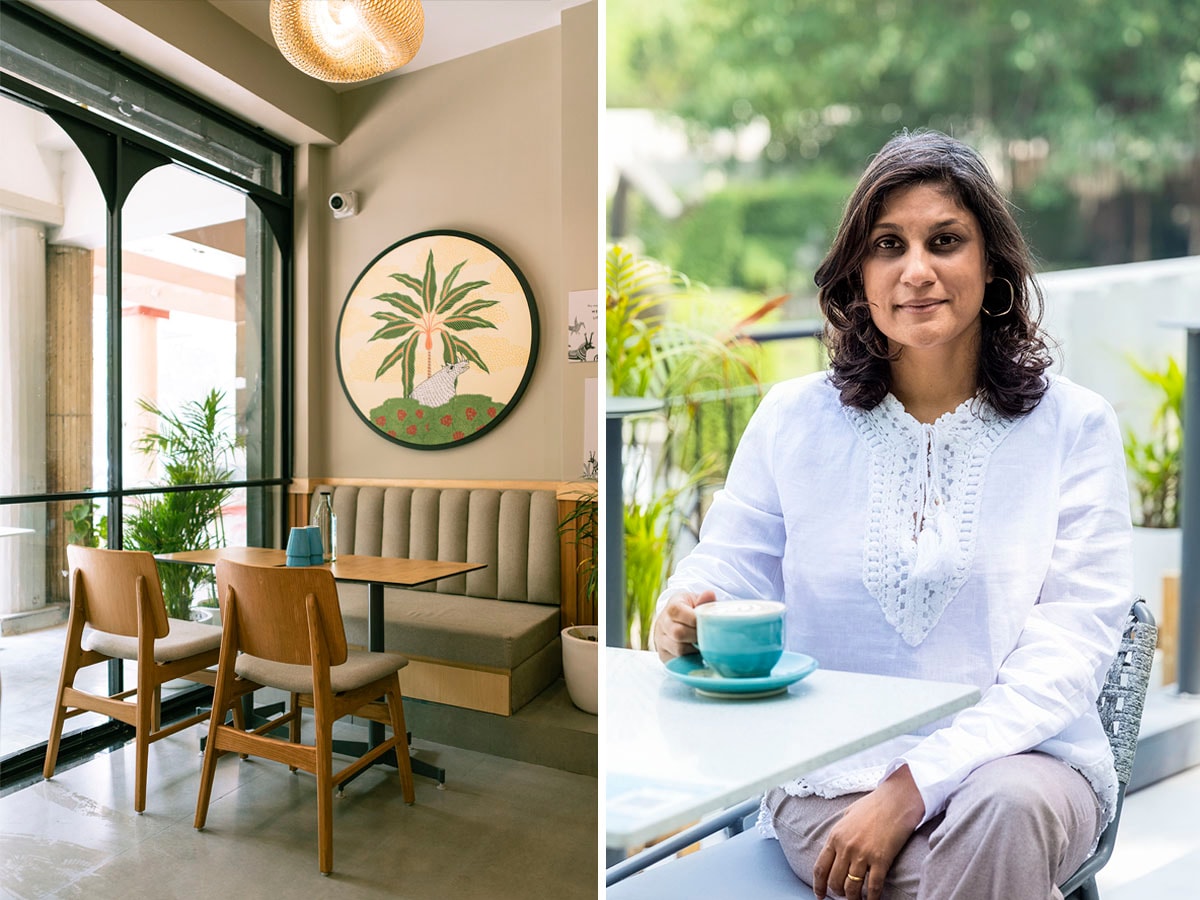 Namrata Asthana, Co-Founder of Blue Tokai Coffee, and a Blue Tokai cafe
Namrata Asthana, Co-Founder of Blue Tokai Coffee, and a Blue Tokai cafe
With quality, consistency, and accessibility being the focus, Blue Tokai sources specialty-grade coffee that scores 80+ as per SCA standards from over 80 of India’s finest farms and serves it across 120+ cafés in cities such as Delhi, Mumbai, Kolkata, Bangalore, and more. “Since 2021, our roasting volume has increased by 218 percent, while we continue to prioritise consistency and quality. In line with our mission to make high-quality, Indian-grown coffee more accessible, we offer a range of products, including Easy Pour sachets, ready-to-drink cold brew cans, and roasted coffee packs available in 13 grind sizes to cater to different preferences and needs," says Asthana, who along with her husband Matt Chitharanjan and a third partner and present COO Shivam Shahi laid the foundations for Blue Tokai Coffee Roasters in New Delhi in 2013.
All their blends are crafted using single-origin specialty beans sourced from some of India’s finest farms. “Partnerships are a key part of our mission to make great quality coffee more accessible. They allow us to explore the endless possibilities within specialty coffee, whether that’s through unique formats, new products, or co-creating exciting events," adds Asthana. Looking ahead they plan to expand their café presence from 130+ to 350 cafés across India over the next two to three years.
 Mitali Maheshwari, Head of Product and Marketing, TATA Starbucks
Mitali Maheshwari, Head of Product and Marketing, TATA Starbucks
TATA Starbucks is passionate about crafting exceptional experiences that deeply resonate with customers, blending our global coffee heritage and ‘third place’ proposition with the vibrant and diverse culture of India. “As we celebrate over a decade in India, our relentless pursuit of innovation continues to cater to the evolving tastes of Indian consumers. The recently introduced Classics range exemplifies our endeavours, featuring meticulously crafted textures, mouthfeel, and tastes with flavours such as jaggery tailored to the Indian palate," says Maheshwari. Underpinned by valuable consumer insights and driven by a team of skilled partners, they remain steadfast in their commitment to serving the highest quality Arabica coffee from around the world.
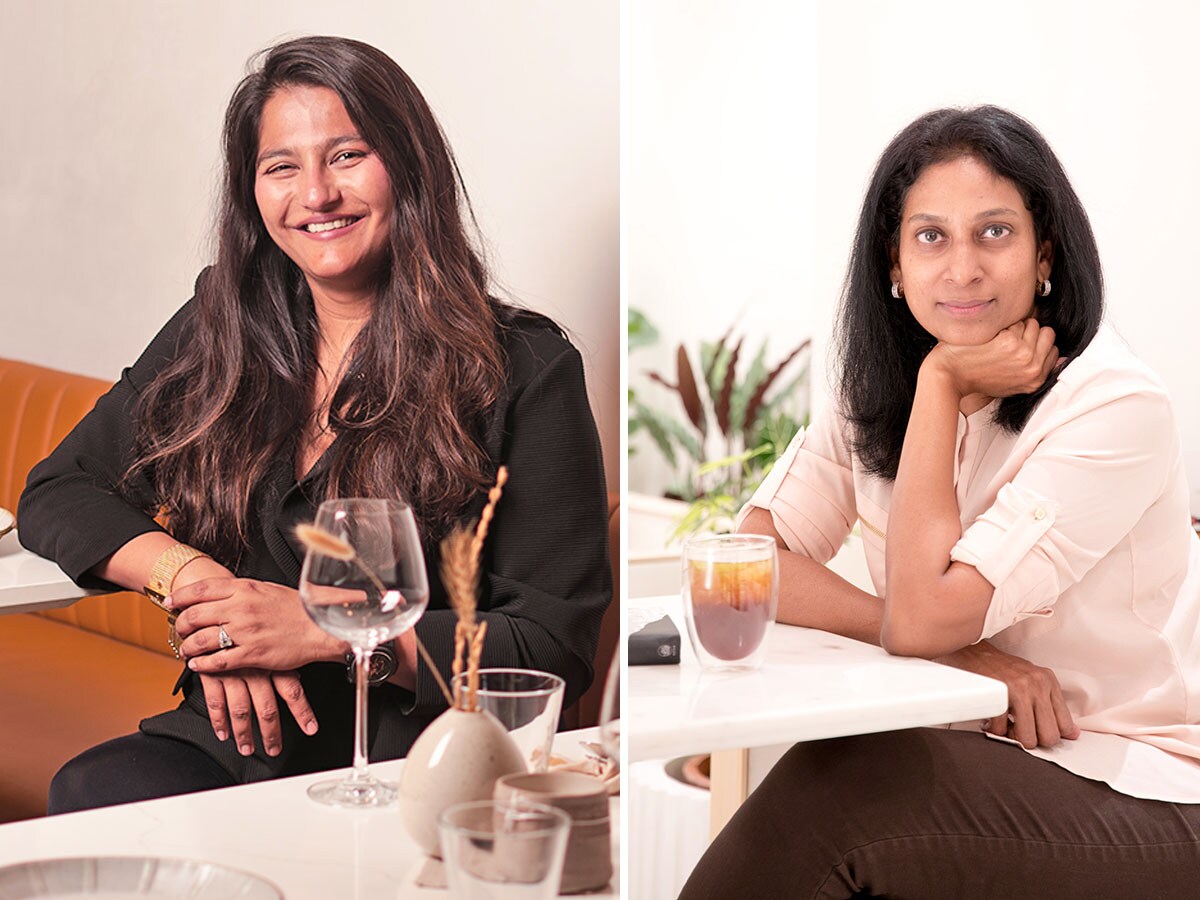 Aditi Dugar, Chief Brand Advisor (Retail & Lifestyle), Araku (left) and Anupama Sreeramaneni, Vice President , Araku Transformation at Naandi Foundation
Aditi Dugar, Chief Brand Advisor (Retail & Lifestyle), Araku (left) and Anupama Sreeramaneni, Vice President , Araku Transformation at Naandi Foundation
Araku Coffee’s story is one of transformation, of how one of the most marginalised communities was able to change an entire region, turning it from despair to hope. What once began as a life of subsistence farming in the forests has evolved into the ownership of thriving coffee estates that now generate sustainable profits. Naandi Foundation started work in the Araku region in the early 2000s and started the Gems of Araku, an annual harvest festival to celebrate the coffee of Araku, in 2009. The Paris flagship (2017), Bengaluru flagship (2021) and Mumbai flagship (2023) stores have followed suit.
“Supported by the Naandi Foundation, Araku Coffee is the world’s first terroir-mapped coffee, grown on the largest certified organic plantation in the Eastern Ghats of India. Araku, in Andhra Pradesh, has proven to be the perfect highland terrain for cultivating 100 percent Arabica coffee," says Sreeramaneni. What separates Araku Coffee from conventional coffees of the world are its regenerative agricultural processes. “Your coffee actually tastes like the forest it grew under. Araku Coffee is nurtured in the diverse and indigenous fruit forests grown by the coffee farmers. This is done with very strict scientific and agricultural support from experts who have helped reintroduce native species into the region, helping to restore Araku Valley’s biodiversity," adds Dugar.
Quality is ensured through 19 meticulous steps from seed to cup (19 steps that help them fetch a cupping score of 91 points). The future goal is to increase the number of coffee farming families from 25,000 to 1.25 lakh farmers within the next three years.
First Published: Dec 14, 2024, 09:44
Subscribe Now